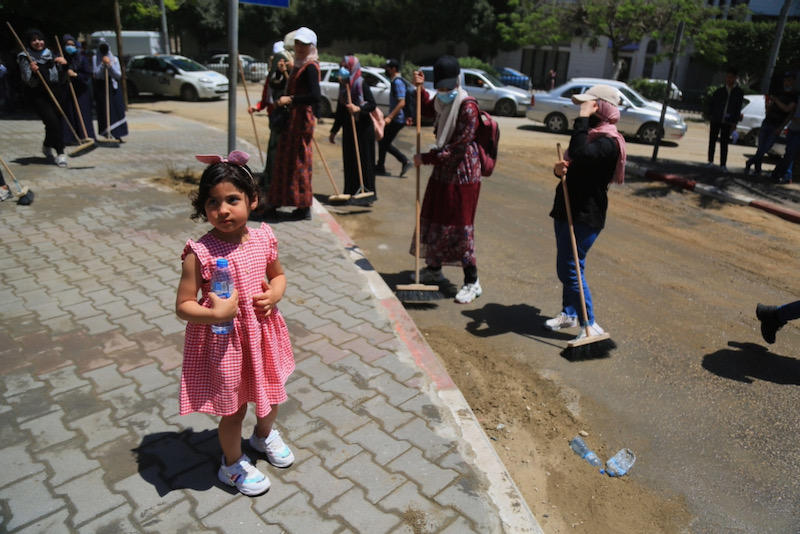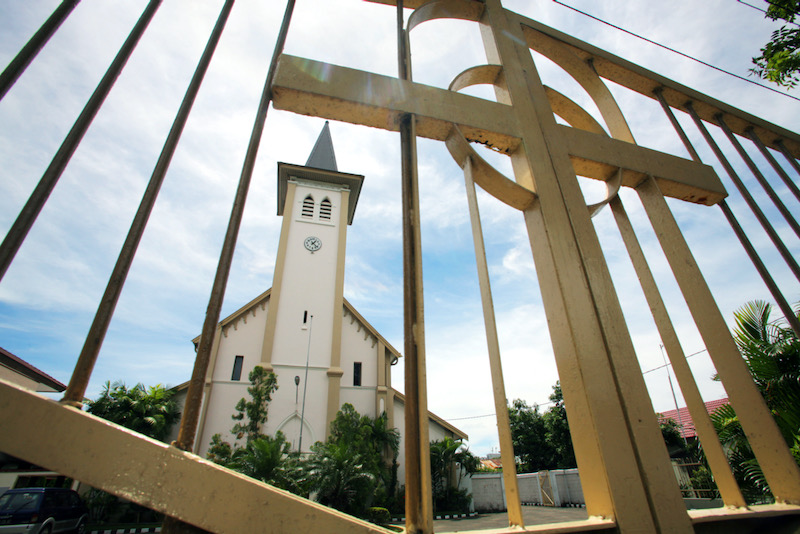Christianity is being increasingly suppressed in China despite the extension of the 2018 provisional agreement on episcopal nominations between the Holy See and the ruling Chinese Communist Party, Archbishop Ludwig Schick of Bamberg, who is responsible for world affairs in the German bishops’ conference, has warned. “Proclaiming the Gospel Message has become increasingly difficult in spite of the agreement. The dynamic of the past year quite clearly points to increasing suppression of religion in China,” Schick emphasised. The key focus of the restrictions at the moment were regulations which made access to religious life impossible for children and young people. “Pastoral work with children and young people has become rare in China. In more and more places, the government authorities consistently forbid young people who are not of age to come into contact with religion. Prohibitions of this order that have existed for some time in certain parts of China are now being enforced at all levels,” Schick explained. The China Centre in St Augustin (founded in 1888) had recently reported that Catholic orphanages in China had been forced to remove all religious symbols and that saying grace before meals in the orphanages was now forbidden, Schick said. “All these restrictive measures are part of the Chinese leadership’s anti-religions – particularly anti-Christian Churches but also anti-Muslim – campaign.”
Cardinal Malcolm Ranjith, Archbishop of Colombo, joined growing calls last week to postpone legislation over Chinese-built Colombo Port City, 269 hectares of land reclaimed from the ocean and annexed to the city of Colombo. He urged the government on 19 May not to rush a controversial bill through parliament. “I request the government to postpone passing the proposed bill on behalf of the people,” he said. “I saw the signboards at the port city and they are written first in Sinhala, second in English and third in Chinese, and that means a Chinese colony is being formed in our country, but our country is Sri Lanka.” However, the following day, the Colombo Port City bill was given parliamentary approval, after elements of it were altered that had been ruled inconsistent with the country’s constitution. There is now a go ahead to create the Colombo Port City Economic Commission, a huge Chinese luxury oceanside development built on the reclaimed land.Religious leaders and rights activists had opposed the US$1.4 billion Port City on the grounds that it would undermine the human rights of local communities and damage the marine environment. Opponents also warned that Chinese loans could become a debt trap, highlighting that Sri Lanka has already handed over Hambantota Port to China in 2017, as its debt increased, for a 99-year lease.
Pope Francis prayed on Sunday for people in eastern Democratic Republic of Congo facing the aftermath of a volcanic eruption.He particularly prayed for the city of Goma, near the border with Rwanda, where people fled their homes to escape nearby Mount Nyiragongo. It erupted for the first time in nearly two decades last Saturday, turning the night sky red. Many of Goma’s more than a million residents moved as lava reached city outskirts and a major highway. Rwandan authorities reported that more than 5000 Congolese crossed the border and would be given shelter in schools and places of worship.
Gunmen attacked a Catholic parish in northern Nigeria on 20 May, killing one priest and kidnapping another. Fr Alphonsus Bello, 30, a parish priest in Katsina State, was murdered, while an elderly retired priest, Fr Joe Keke, was allegedly kidnapped by unknown bandits. Several others were injured in the raid at the parish of St Vincent Ferrer in Malunfashi, Sokoto diocese.Three days earlier, a priest serving in Kaduna Archdiocese was among 11 people reportedly kidnapped when gunmen attacked the Kadaje community in Kachia, killing eight people.
Catholic patriarchs and bishops of Syria, holding their annual meeting in Aleppo last week, called for the “unjust” economic sanctions of Western countries against President Assad's Syria to be removed. They applauded the work of Caritas Syria in assisting “the growing multitude of Syrians forced to live below the threshold of poverty.” However, they lamented the exodus of young Christians from the country and urged responses to ensure, "that our children remain in their land, since we believe that our presence and witness in this country is necessary and important". They called for all citizens to vote in this week’s presidential election.
The McGrath Institute for Church Life at the University of Notre Dame in the United States released a report detailing benchmarks for seminaries to follow as they implement sexual misconduct policies. The benchmarks include “Systemic Training: Seminarians, faculty, and staff must be trained consistently and repeatedly (at least annually, and upon starting at the seminary), regarding policies on sexual harassment, especially reporting procedures, definitions, and the investigative process, including possible outcomes and follow up.” So far, 15 seminaries have agreed to implement the benchmarks.
Indonesian police have arrested 53 people in connection with a bomb attack on a Catholic cathedral in Makassar, capital of South Sulawesi province, two months ago. More than 20 people were injured at the Sacred Heart of Jesus Cathedral on Palm Sunday when a newly married couple belonging to the Islamic State-affiliated Jamaah Ansharut Daulah (JAD) network carried out a suicide attack. The police say they are cracking down on the support network that helped stage the attack. Suspects could face up to 20 years in jail under Indonesia’s anti-terrorism laws.
The Catholic Church supported Bangladesh tea workers last week, who were marking the centenary of a massacre of workers brought in by British tea planters for commercial tea plantations in the British colonial era. On 20 May 1921, hundreds from plantations in the Sylhet region were shot by police as they tried to return home. “They wanted to escape slave-like conditions but they failed,” said Holy Cross Father Nicholas Baroi, convener of the Justice and Peace Commission in Sylhet Diocese. “It is a matter of great sadness that the great sacrifice didn’t have any impact as the lives of tea workers have not improved,” he added.About half of the 20,000 Catholics in Sylhet today are from tea worker communities, and Fr Baroi described their conditions as “modern-day slavery.”
The ailing Jesuit priest and tribal rights activist Fr Stan Swamy has pleaded with the Bombay High Court at a pre-trial video hearing to grant him interim bail to return to his home near Ranchi rather than be taken to a Mumbai hospital. The 84-year-old told the court on 21 May that when he was brought to Taloja jail eight months ago, “I would eat by myself, do some writing, walk, but all these are disappearing one after another.” His solicitor highlighted the lack of medical aid at the prison but said Fr Swamy would rather "suffer and possibly die" in jail than be taken anywhere but home.
Lay parish leaders will in future be allowed to deliver the sermon at Mass in the Swiss diocese of Chur. Up to now, lay leaders have only been allowed to preach at Services of the Word. Their licences contained a paragraph expressly stating that they were not allowed to preach at Mass. After discussing the issue in the bishops’ council, the new Bishop of Chur, Joseph Maria Bonnemain, has now deleted this paragraph. This means that lay parish leaders may deliver the homily at Eucharistic celebrations.
The senior cleric of the Czech Republic Catholic Church has lost a Supreme Court lawsuit against two anti-religious theatre productions, after claiming their obscene content violated his Christian feelings. “Both dramas addressed issues of great social relevance - any insulting or irreconcilable act was not an end in itself,” the court said in its ruling. “The rights to free choice of religion and not to be exposed to insults as a result has been correctly balanced, as has the right to freedom of expression, which also relates to shocking and worrying content.” Cardinal Dominik Duka, 78, of Prague brought the case against the National Theatre and Experimental Theatre Centre in Brno, in the South Moravian region of the Czech Republic, over their staging of the productions by the Croatian director, Oliver Frljic, during a May 2018 festival, claiming his personal rights had been violated. The first, Damnation, dealing with sexual abuse by clergy, included simulated oral sex on a statue of the Pope, while the second, Our Violence and Your Violence, depicted an actor playing Jesus descending from the Cross to rape a Muslim woman. Cardinal Duka's lawyer, Ronald Nemec, told Czech media an appeal could still be lodged with the European Court of Human Rights.
Vatican employees have complained to Pope Francis about pay cuts that he instigated. In an open letter to the Pope, the Vatican employees said that the Holy See’s decision to cut worker salaries during the pandemic had been unfair, and perpetuated an “exclusive, anti-meritocratic and disincentivising” workplace. This year Pope Francis decreed that the Vatican would cut the salaries of cardinals by 10 per cent, and reduce other staff pay by between 3 per cent and 8 per cent. The pretext was a reported ballooning budget deficit caused by a collapse in revenues during the pandemic.



 Loading ...
Loading ...